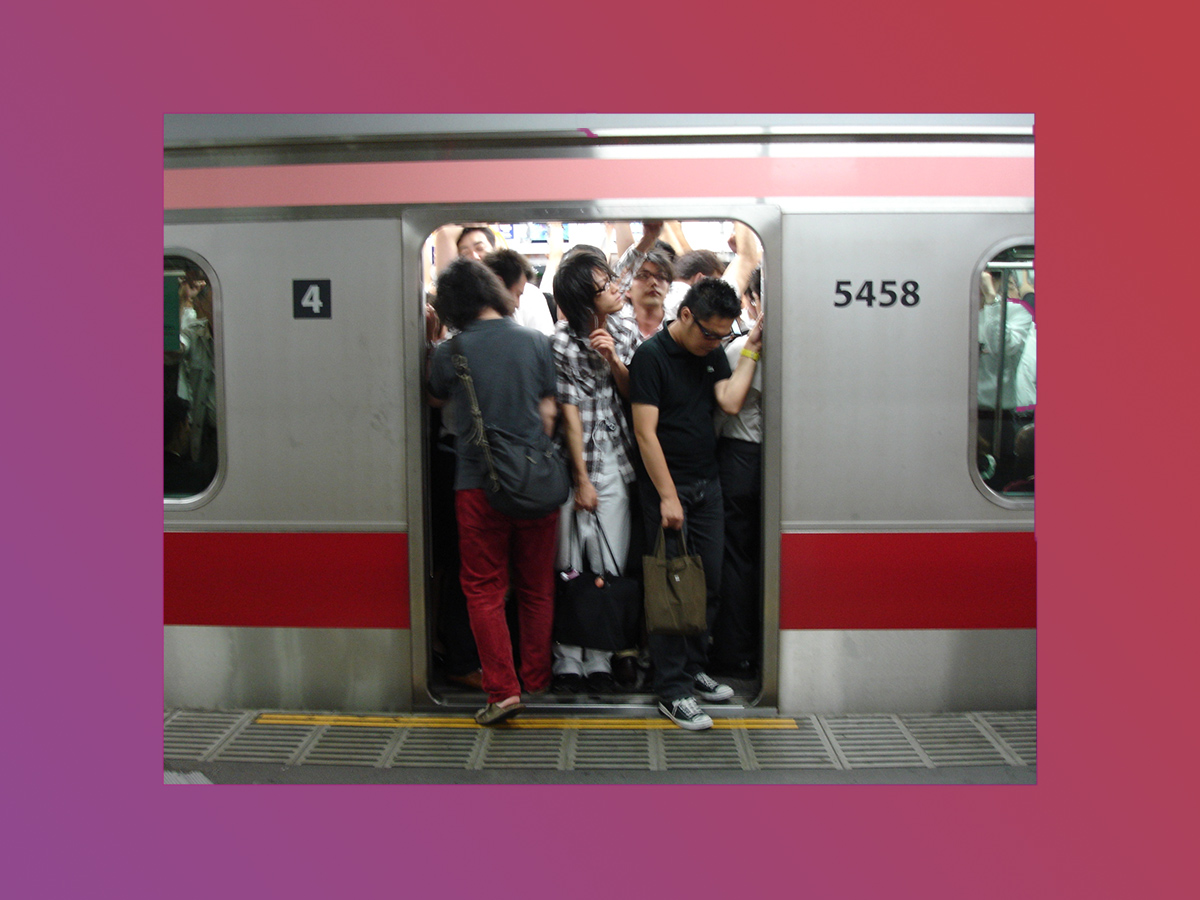- Tags:
- gaijin / gaikokujin / Japanese culture
Related Article
-

The Strikingly Unique and Colorful Art of Hiroyuki-Mitsume Takahashi
-

On Your Next Visit To Tokyo, You Can Get Certified in Japanese Culinary Art In Half A Day
-

What is wabi sabi?
-

Music Instrument Maker Roland Co-Invents The Ultimate Bathroom Noise Annihilator
-

Cheering Stifled At “Cheering Format” Showings of Avengers: End Game in Japan
-

Artist Ryo Fujii’s Video Brilliantly Spoofs Japanese Apology Culture



After living abroad for a few years in a foreign country, you get used to most things. You can go to a language school or befriend locals to improve your language skills. You get used to using public transportation and can probably find enough decent food even if you’re a picky eater. And if that foreign country is somewhere like the United States or England, you might even blend in and end up being treated like a local.
But what about in a country like Japan, where only two percent of the population is made up of foreign residents?
TishoYanchev [CC BY-SA 4.0], via Wikimedia Commons
According to an article by The Japan Times, here, the foreign population hit a record high of 2.82 million, which includes all residents registered by June of last year. With Japan gearing up for the Tokyo Olympics and new work visa categories calling for engineers and other highly skilled professionals, this number is expected to steadily increase.
But even so, to what degree can foreigners living in Japan really call it home? Perhaps overcoming the gaijin stereotype is most likely to happen in Tokyo, where more than half a million foreigners reside.
WebstockReview.net
Gaijin 外人 literally means ‘outsider’ or ‘foreigner’ as ‘gai’ 外 means ‘outside’ and ‘jin’ 人 is ‘person.’ The politically correct way of saying foreigner would be gaikokujin 外国人, which includes the kanji for ‘country’ in the middle. Now we could discuss whether gaijin has a negative nuance or not, but what’s more interesting is how often these words are used to distinguish between foreigners and native Japanese.
In many countries, rather than referring to someone simply as a foreigner, you’d use their nationality or ethnicity. And of course, the Japanese often do this too. But watching the news or overhearing many conversations, it’s surprising how often I hear the word gaijin come up in conversation. Now, I’m no linguistics expert, but I’d say that rather than emphasizing which country the person is from, what is being emphasized is the fact that the person is not Japanese.
The perks of being a gaijin
There are times when I find living in Japan to be quite puzzling. For example, when I’m sitting on a crowded rush-hour bus or train and the only empty seat is the one next to me. Perhaps the people around me are concerned I’m a tourist and will ask them for directions in English if they sit next to me. But when I’m wearing a suit and going to work that doesn’t make sense so what could it be?
I mentioned this casually to my boss one day. He’s originally from Paris, but has now been living in Japan for more than 10 years and is married with kids. He asked me, “Why are you so upset that you have an empty seat next to you? You should stretch out and enjoy the extra room instead of worrying about whether you’re being discriminated against.”
quatro.sinko on Flickr.com
He’s right of course. But at the same time, I’d like to say the nearby passengers eyeing the seat that it’s available and I’m not going to bite them if they’d like to sit down.
“Even between Japanese people, many prefer to keep a distance between themselves and others when they sit down on a train or bus. And others just stand no matter what.” – Haruka, 27, Tokyo
“Nihongo jouzu desune!”
My friend works as a bellboy at a hotel in Kyoto. He is expected to use both honorific and humble language throughout his workday while dealing with both the hotel guests and his colleagues. He may be saying something like “This is your room. Here’s your key,” and is surprised when a guest compliments him for being able to say something he’s already said 20 times already that day.
And we’ve all been there. From simple greetings to ordering food at a restaurant, Japanese have a habit of praising foreigners who can speak their language.
My former Japanese teacher told me this could, of course, be genuine delight at your Japanese ability, especially if the banter has continued. But it could also just be ‘oseji’ お世辞, a kind of superficial flattery which is deeply ingrained in Japanese conversations, especially so with strangers and acquaintances.
But this praise, especially in the workplace, is not so evenly distributed. A Thai woman was hired at the same time as my friend and has had a very different experience working at the hotel. She said guests often ask her if she is Japanese and will request to speak to someone else.
Of course, if there were a language barrier that would make sense, but her Japanese is much more fluent than my friend’s and she doesn’t enjoy the same leeway, not to mention a lack of compliments. A former classmate from Hong Kong shared her experience working as an event photographer.
“As a cameraman there’s a lot of instructing guests how to stand and where to look. It’s hard enough doing that, but I have to use polite language. I’ve had customers ask if Japanese staff is available. It feels like because I’m Asian I’m subjected to a higher standard than if I were white. You’re lucky.”
The Gaijin Card
There are many other examples of foreigners having it easy in Japan; a bus driver letting a Taiwanese girl, Dory, 24, Kyoto, off without paying, city hall staff filling out health insurance forms for an Indian man, Gurachi, 43, Kyoto, who (pretended he) couldn’t read kanji, an American named Tom, 42, crossing the street in his Osaka neighborhood regardless of surrounding traffic quoted as saying, “They’ll stop for me because I’m foreign.”
These privileges are collectively known as the Gaijin Card.
If you’ve ever opened your apartment door to be greeted by the NHK man asking about your TV, and you said “Sorry, do you speak English?” then you took advantage of the G card.
Survey: What do Japanese think?
As my curiosity reached its peak, I decided to take a survey of Japanese to see if they feel they consciously treat foreigners differently.
The Facts
Opinions vary, but many Japanese say they don’t consciously categorize people as being foreign. But let’s say you come across a group of Japanese kids on the street or bus. You’re likely to hear them saying “Gaijin gaijin!” as I have numerous times. We know that kids don’t censor themselves as much as their adult counterparts, so these vocal outbursts are simply evidence of the gap that remains between Japanese and foreign residents.
Please don’t draw the wrong conclusion from this article. I’m not arguing that the Japanese are racist and stereotype foreigners. I’m simply pointing out that Japan is one of the most unique developed countries in the world. Perhaps Japanese national pride has allowed them to set themselves apart from the rest of the world just enough to maintain its cultural authenticity while simultaneously adapting to western culture and spreading its own pop culture.
So for those of you, like me, who wonder whether we can really blend in, maybe that’s not the point. We can live here, learn the language, work, raise a family, and even become a naturalized Japanese citizen. But for many westerners, no matter how long we live here, we are still often mistaken as a tourist. And I think that’s perfectly ok. Because in our globalized world where differences are becoming less noticeable, Japan still allows westerners like myself to experience the adventure of living in a foreign land.